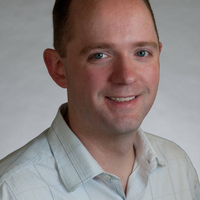Author
Kevin J. Bowers

Biography
Kevin J. Bowers received a BSEE from Purdue in 1997, graduating with highest distinction after five semesters. With Hertz Foundation support, he received a Ph.D. in EECS from UC-Berkeley in 2001. Presently, he is head of R&D at a Jump Trading where he uses techniques from applied physics, electrical engineering, and computer science to develop custom hardware, software, communications, storage, machine learning and numerical algorithms for real-time execution and massively parallel optimization of quantitative trading strategies. Concurrently, he consulted for Los Alamos and served on various committees for the U.S. government and private organizations regarding the use of high performance computing to address pressing global issues. Previously, he developed custom hardware, software, networking, and numerical algorithms for massively parallel computational biochemistry simulation at D. E. Shaw Research, implemented some of the world's largest massively parallel plasma physics simulations at Los Alamos, researched opto-micro-electro-mechanical systems and semiconductor manufacturing at Bell Labs and engineered embedded microchip applications at Intel. His research interests include high performance distributed computing, scientific computing, signal processing, optical electronics, quantum electronics, electromagnetics and plasma physics.
Dr. Bowers was a co-recipient of Best Paper Awards at the 2006 and 2009 ACM/IEEE Conferences on Supercomputing and an ACM Gordon Bell Prize in 2009 for his work at D. E. Shaw Research. His work with Los Alamos received Los Alamos Distinguished Performance awards and Defense Programs awards of excellence, was a finalist for the ACM Gordon Bell Prize in 2008 and was featured at Los Alamos's Bradbury Science Museum. The codes he helped develop have been described and used in hundreds of highly-cited scientific papers, featured in the media, have been successfully open-sourced and/or commercialized and remain anchor applications for the world's largest supercomputers. As a graduate student, he was Berkeley’s student representative to the 50th meeting of Nobel Laureates and received the American Physical Society Division of Plasma Physics Best Thesis Prize, the David J. Sakrison Memorial Prize for outstanding thesis research, the Hertz Foundation Fellowship, the Department of Defense National Defense Science and Engineering Graduate Fellowship (declined), the NSF Graduate Research Fellowship (declined) and the University of California Regents Fellowship.
Dr. Bowers was a co-recipient of Best Paper Awards at the 2006 and 2009 ACM/IEEE Conferences on Supercomputing and an ACM Gordon Bell Prize in 2009 for his work at D. E. Shaw Research. His work with Los Alamos received Los Alamos Distinguished Performance awards and Defense Programs awards of excellence, was a finalist for the ACM Gordon Bell Prize in 2008 and was featured at Los Alamos's Bradbury Science Museum. The codes he helped develop have been described and used in hundreds of highly-cited scientific papers, featured in the media, have been successfully open-sourced and/or commercialized and remain anchor applications for the world's largest supercomputers. As a graduate student, he was Berkeley’s student representative to the 50th meeting of Nobel Laureates and received the American Physical Society Division of Plasma Physics Best Thesis Prize, the David J. Sakrison Memorial Prize for outstanding thesis research, the Hertz Foundation Fellowship, the Department of Defense National Defense Science and Engineering Graduate Fellowship (declined), the NSF Graduate Research Fellowship (declined) and the University of California Regents Fellowship.
Presentations
Awards
Test of Time
Applications
Architecture and Networks
Codesign
TP
W
